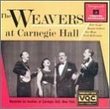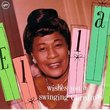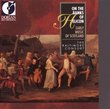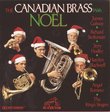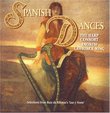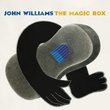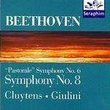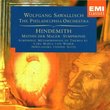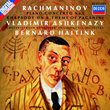| All Artists: Bruckner, Skrowaczewski Title: Symphony 7 Members Wishing: 0 Total Copies: 0 Label: Arte Nova Records Release Date: 1/1/1998 Genre: Classical Style: Symphonies Number of Discs: 1 SwapaCD Credits: 1 UPC: 743212777123 |
Search - Bruckner, Skrowaczewski :: Symphony 7
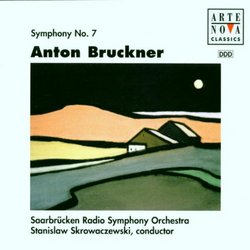 | Bruckner, Skrowaczewski Symphony 7 Genre: Classical
|
Larger Image |
CD DetailsSimilarly Requested CDs
|
CD ReviewsSuperb 07/11/1999 (5 out of 5 stars) "Skrowaczewski's Bruckner is magnificent. His control of color is wonderful. Check out the glorius, radiant sound of the strings in the slow movement and how the woodwinds weave lyrically through them. Contrast this with the rugged energy and power of the scherzo. His tempos are well chosen too. Not too fast (rarely a problem in Bruckner!) but also not too slow. Just about the best Bruckner 7 you can get at any price." Wonderful, another bargain-treasure in the Arte Nova catalog 03/25/1999 (5 out of 5 stars) "This was my second introduction to Bruckner's world. After the knowing hand of Jochum/Dresden in symphonies 4 and 9, I bought this disc because it was cheap,I like Skroweczewski quite a bit, and friends told me that orchestra musicians find his Bruckner to be quite special. I admit that I haven't listened to many other recordings of the 7th, so I might be missing something that can be found in Karajan/Vienna, Jochum/various, or Wand, but I have to also admit that I've had no desire. The Saarbrucken RSO is a much better band then I expected; the violins are especially noteworthy--witness I, with incredible phrasing and a beautiful tone. The engineering is clear and warm. Even if you have other 7ths, or you want to be introduced to the composer with one of his most popular works, grab this one." A Magnificent Bruckner Seventh Thomas F. Bertonneau | Oswego, NY United States | 03/09/2001 (5 out of 5 stars) "Two classes of potential buyers should be interested in this disc: Those coming to Bruckner for the first time, who want a first-rate, but painlesss-to-the-pocketbook introduction to the music and those who already own one or more classic performances of the E-Major masterpiece and want to add another grand interpretation to their CD library for purposes of reference and comparison. At Arte Nova's low asking price, the prospect is risk-free. Indeed, Stanislaw Skrowaczewski's traversal with the Saarbrücken Radio Symphony Orchestra ranks with the very finest among its counterparts, surpassing some (Karajan's on DG, for example, or Tennstedt's on EMI) that have been highly touted. Listen to the way that Skrowaczewksi takes the dawn-and-sunrise of those opening bars: The string-tremolando emerging out of silence over which rises, in a magnificent arch, that radiant yearning theme in the cellos, backed up by the first horn, the first clarinet, and the violas. This performance makes it clear why the Seventh, in Derek Watson's words, "brought to Bruckner [not only] the fullest measure of success [but] the greatest joy in his lifetime." Skrowaczewski avoids the recent trend of slowing down the tempi in Bruckner's already moderately paced movements. The Allegro Moderato comes in here at 21.45; the following Adagio needs only 24.46 to reach its darkly glowing chorale-like climax in the quartet of Wagner tubas that Bruckner added to the score. The Scherzo is a fleet nine-and-a-half minute affair and the Finale runs its impressive course in a little under twelve minutes. (Skrowaczewksi is much closer to the mid-century Brucknerians in his timings than he is to his contemporaries. In the First Movement, for example, Furtwängler and Knappertsbusch take 19.02 and 20.02 respectively; Celibidache, on the other hand, in the EMI recording, takes 24.17, while 22.00 or 23.00 is about the current average.) Perhaps because the Seventh is Bruckner's most popular symphony, we forget its formal challenge of two large-scale movements followed by two modest movements. Some performances put so much emphasis on the Allegro Moderato and the Adagio that the Scherzo and the Finale (Bewegt, doch nicht zu schnell) become mere ornamental adenda. Skrowaczewski finds the right formula for the Finale, whose coda catches fire in a remarkable display of balance, color and careful voicing. Now and then the conductor can be heard singing along with the orchestra or vocalizing an accent. It is a sign of how much he is caught up in the splendor of this music. "All Bruckner's music is devotional music," wrote Colin Wilson in "Chords and Discords"; "in its broad, onward sweep it brings to mind the Passions of Bach." Strongly recommended."
|

 Track Listings (4) - Disc #1
Track Listings (4) - Disc #1
